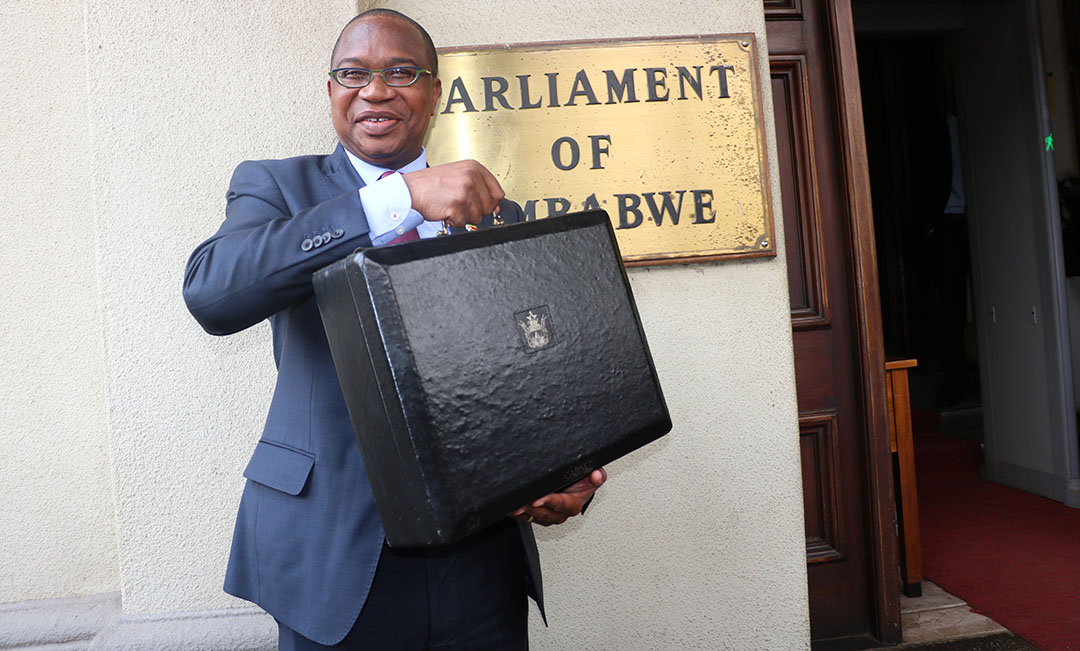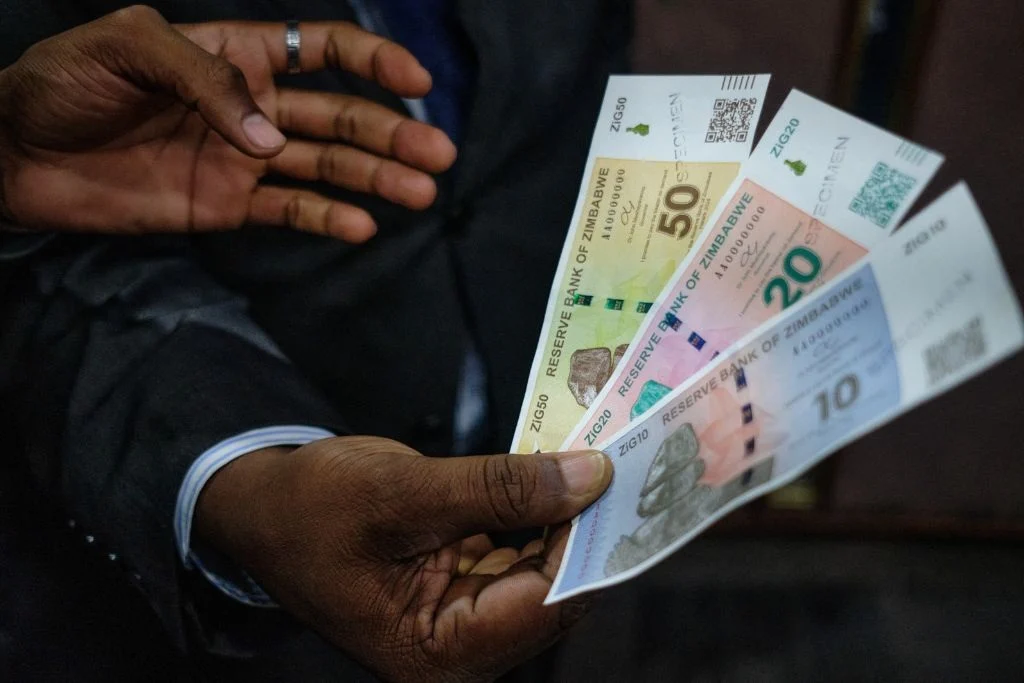HARARE – Zimbabwe will cut value added tax (VAT) to 14.5 percent from 15 percent effective January 2020 in order to boost consumer demand, Finance Minister Mthuli Ncube said on Thursday as he unveiled the 2020 budget in Parliament.
Ncube also proposed to lower the corporate income tax rate to 24 percent from 25 percent.
The economy is forecast to grow by 3 percent next year from a projected contraction of 6.5 percent this year, helped by improvements in agricultural output and electricity generation, Ncube said.
Ncube said he expected revenues of ZWL$58.6 billion, while projecting expenditure of ZWL$63.6 billion.
“In order to avoid the undesirable impact of deficits on money supply and macroeconomic stability, the 2020 Macro Fiscal Framework espouses a low budget deficit of around 1.5 percent of GDP, excluding retentions,” Ncube said.
The budget deficit was 4 percent in 2019.
Education got the highest budget vote, with Primary and Secondary Education receiving ZWL$8.5 billion, while Higher and Tertiary Education was backed for ZWL$2,2 billion.
Health was allocated ZWL$6.5 billion; Defence and War Veterans got ZWL$3.11 billion and Home Affairs received an allocation of ZWL$2.8 billion.
Opposition MDC MPs boycotted the budget statement in parliament because of the presence of President Emmerson Mnangagwa, who is not recognised as president by the MDC after he won a disputed election in July last year.
Ncube said drought, electricity shortages, rising inflation, exchange rate shocks and acute foreign currency shortages had imposed immense pressure on the economy “leaving it in a weak position for the greater part of 2019.”
Growth projections for 2020 were based on expectations of a better rainfall season and improved power generation, the minister said.
Declaring an end to his austerity measures which have put the government on a collision course with its 230,000 workers demanding better pay, Ncube said “no pain that we suffer, no trial that we experience is wasted… it ministers to our education and development,” while quoting the religious leader Orson Whitney.
“The 2020 national budget marks the exit from austerity to growth stimulation and employment generation era through promotion of production-oriented investment and productivity, without losing focus on fiscal responsibility,” Ncube said.
He maintained that his unpopular reforms under the banner of “austerity for prosperity” were “in no way a retribution, especially in view of the fact that our public finances were not balancing, following years of unsustainable fiscal deficits.”
Between January and August, Ncube said the country had posted an average surplus of ZWL$1.4 billion.
He projected that monthly inflation would fall to a single digit from the first quarter of 2020, and close the year at around 2 percent. Year-on-year inflation was 380 percent in September.
Ncube said the government would continue to subsidise the state-owned bus company, ZUPCO, to provide low-cost transport services to hard-up commuters, but said he was lifting government subsidies for grain millers. Bread and mealie-meal prices are expected to go up as a result.
“The current subsidy policy whereby the government funds the procurement of grain at market prices and sells this to registered grain millers at subsidised prices, has been open to abuse and placed a huge burden on the fiscus,” the minister told MPs.
“At times the intended beneficiaries do not enjoy the benefits of the subsidy from the government… To address these distortions, the government, will, with effect from January 2020 remove the existing subsidies for maize and wheat, that were being provided to grain millers through the Grain Marketing Board. The intervention will see GMB selling wheat and maize at market prices, with grain millers having an option to either import or purchase grain from GMB. This means the prices of basic commodities such as bread and mealie meal may adjust.”
Ncube announced a fiscal incentive to support employers who generate jobs for our young job seekers. Any additional job created will attract a percentage tax rebate to the employer, linked to the employee’s salary.
A National Venture Capital Fund capitalised in both the Zimbabwe dollar and foreign currency will finance start-ups through affordable loans. Ncube announced an initial ZWL$500 million for the fund.
Ncube announced an official provision of ZWL$200 million for sanitary wear for learners, which he said would “enhance the dignity of the girl child.”
“In anticipation of the finalisation of the Education Act, the budget is required to have a provision for the supply of sanitary wear for female learners. Based on equity consideration, the proposal is to begin with rural primary and secondary learners from Grade 4 to Upper Sixth form,” he said.
He said a suspension of duty on sanitary wear would be extended for another year. “Sanitary wear is a basic commodity for the hygiene of women and girls. However, its unaffordability is exposing the vulnerable to health-related problems,” he said.
He raised excise duty on cigarettes, from ZWL$50 to ZWL$100 per 1,000 cigarettes with effect from December 1 “in line with global trends”.
He raised the tax-free threshold from ZWL$700 to ZWL$2,000 per month and adjusted tax bands to begin at ZWL$2,001 and end at ZWL$50,000, “above which the highest marginal tax rate of 40 percent applies, in line with economic developments.” The changes take effect from January 1, 2020.
The minister announced a special focus on infrastructure development, including ring-fencing 5 percent of excise duty revenue collected on fuel towards the construction and rehabilitation of Beitbridge-Harare-Chirundu highway.
Hwange Thermal Power Station is undergoing rehabilitation and expansion to the tune of ZWL$8.4 billion.
Ncube said he was in “no doubt that current economic challenges are surmountable”, but warned that this could only be achieved if “we put our efforts together as a nation and continue taking bold and decisive steps to open up and grow the economy.”















